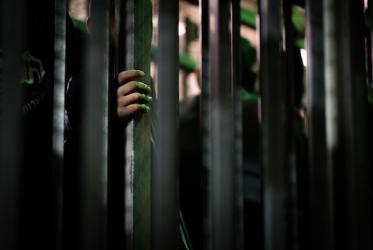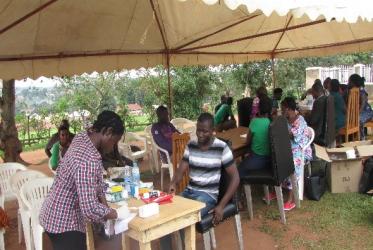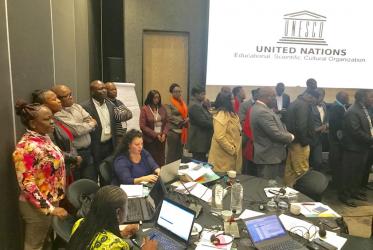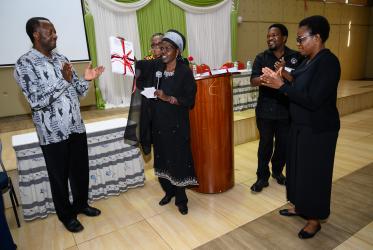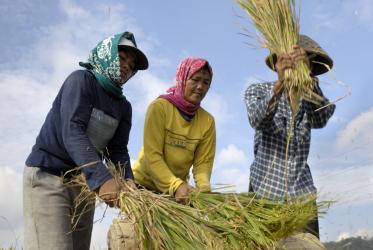Displaying 161 - 180 of 312
WCC treatment manuals address HIV challenges in Uganda
02 August 2019
Taxation and reparations – tools for promoting equity, climate justice and an economy of life
11 July 2019
Church Center for the United Nations, New York
Knowledge of gender roles deepens in Togo
03 June 2019
5th Annual Symposium on the Role of Religion and Faith Based Organizations in International Affairs
29 January 2019
Conference Room 2, United Nations secretariat, New York
Young people in Nigeria focus on positive masculinity, femininity
14 December 2018




